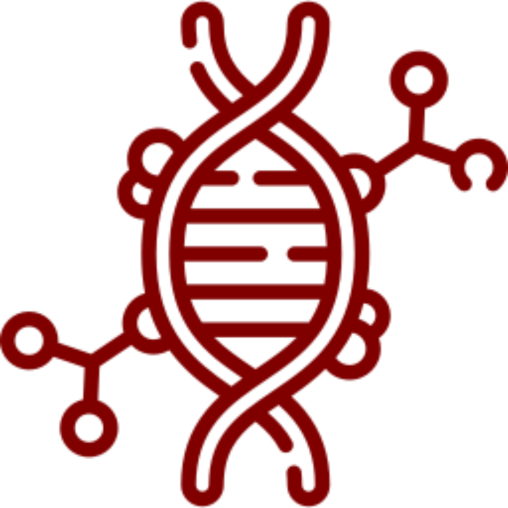Leadership
Areas of Inquiry

Ruth Eatock
Sensory Mechanotransduction

Margaret Gardel
Scaffolds and Motors

Demet Araç
Mechanical Signaling

Yamuna Krishnan
Biophysics and Technology Development

Eduardo Perozo (Director)
Eduardo Perozo is Professor in the Department of Biochemistry and Molecular Biology at the University of Chicago. He obtained a Licenciado Degree in Biology at the Universidad Central de Venezuela (UCV) and his Ph.D in Physiology at the University of California, Los Angeles. He was a postdoctoral fellow in membrane biophysics at the Jules Stein Eye Institute and Dept. of Chemistry and Biochemistry, UCLA. Perozo joined the Department of Physiology and Biological Physics at the University of Virginia as an Assistant Professor. In 2006, he joined the faculty of the Department of Biochemistry and Molecular Biology and became a member of the Institute for Biophysical Dynamics and the Neuroscience Institute. Eduardo was elected as a Fellow of the Biophysical Society in 2015 and in 2019 received the KS Cole Award for contributions to our understanding of ion channel structure and dynamics. In 2023, he was inducted to the Academia de Ciencias de America Latina (ACAL).
Ruth Anne Eatock
Ruth Anne Eatock trained in sensory neurobiology at McGill (B.Sc., M.Sc.), Caltech (Ph.D.) and MIT (postdoctoral fellowship), and held faculty positions at the University of Rochester, Baylor College of Medicine, and Harvard Medical School / Massachusetts Eye & Ear Infirmary, before moving to Chicago in January 2014. She has studied biophysical mechanisms underlying sensory analysis in several model inner ear organs, with a current focus on vestibular sensory epithelia in mammals.


Margaret Gardel
Margaret Gardel is the Horace B. Horton Professor of Physics and Molecular Engineering at University of Chicago. She is a member of the Institute for Biophysics Dynamics and currently serves as Director of the James Franck Institute. She joined the University of Chicago in 2007 after earning her Ph.D. from Harvard University with David Weitz and completing postdoctoral research as a Pappalardo Fellow at MIT and at Scripps Research Institute with Clare Waterman. She is a Fellow of the American Physical Society, andh her awards include a Packard Fellowship, Sloan Fellowship, NIH Director’s Pioneer Award and Raymond, and Beverly Sackler International Prize in Biophysics.
Demet Araç
Demet Araç was an undergraduate at Bilkent University in Turkey, where she majored in Molecular Biology and Genetics. She moved to the University of Texas Southwestern Medical Center at Dallas in 2000 to work with Dr. Jose Rizo-Rey as a graduate student to elucidate the mechanisms of neurotransmitter release. After finishing her graduate training, she joined Dr. Axel Brunger’s lab at Stanford University to study the structure and function of cell-adhesion proteins at the synapse. In 2013, Demet began her independent research career at the University of Chicago within the Department of Biochemistry and Molecular Biology.


Yamuna Krishnan
Yamuna Krishnan is the Louis Block Professor of Chemistry and the College. She has pioneered the interface between DNA nanotechnology and cell biology. Her lab has developed a versatile chemical imaging technology to quantitatively image second messengers in real time, in living cells and genetic model organisms.While her lab is engaged in basic biology – discovering new organellar channels and transporters – she has co-founded two companies –Esya Inc & Macrologic Inc, that utilize her organelle-targeting technology for diagnostics and therapeutics respectively. She is a recipient of the NIH Director’s Pioneer Award, the Ono Pharma Breakthrough Science Award, the Infosys Prize for Physical Sciences, the Shanti Swarup Bhatnagar Prize for Chemical Sciences and the Sun Pharma Foundation Award for Basic Medical Research. She is a AAAS Fellow and was featured on LSDP’s top 100 global thinkers (2014), and Cell’s 40 under 40 list of scientists shaping current and future trends in biology.
Marcos Sotomayor
Marcos Sotomayor is the deputy director of the Center for Mechanical Excitability. He earned a BS in physics and an MS in physics from the Universidad de Chile. He then completed an MS and PhD in physics at the University of Illinois Urbana-Champaign, and a postdoctoral fellowship training in neurobiology at Harvard Medical School. His research focuses on exploring the molecular mechanisms of mechanotransduction in living cells. He seeks to understand the biophysical principles underlying protein mechanics and the vertebrate inner-ear response to sound and head movements.

